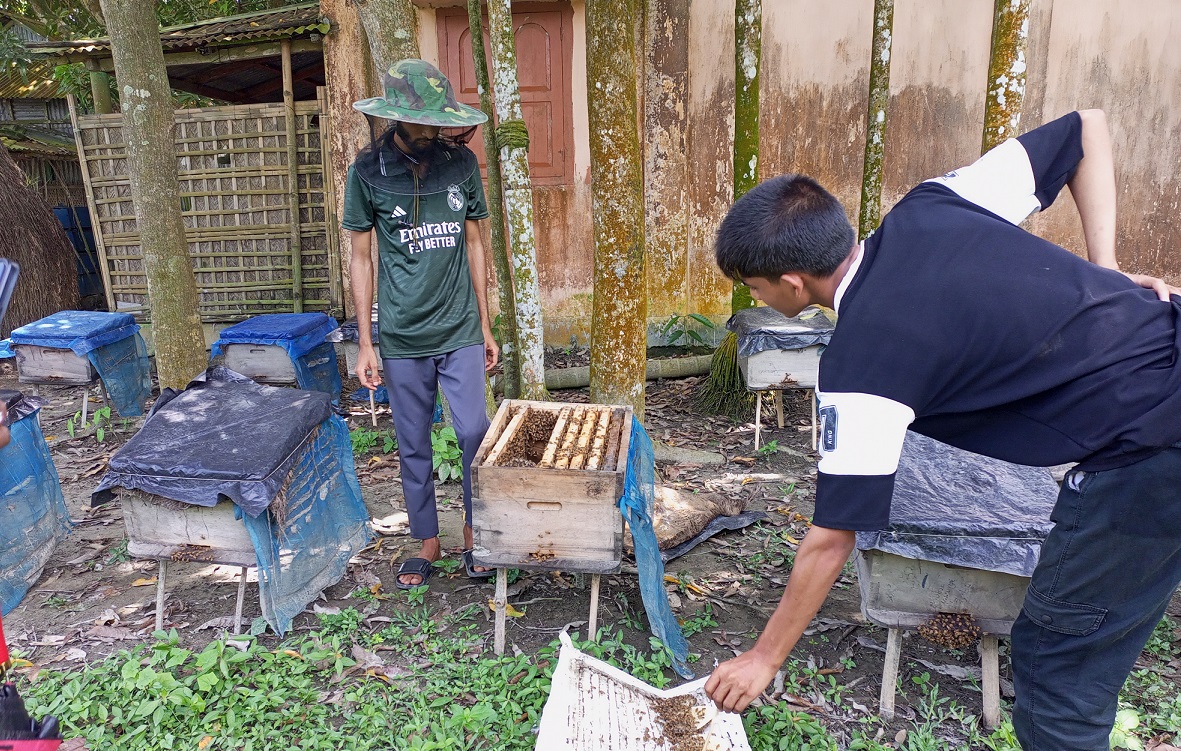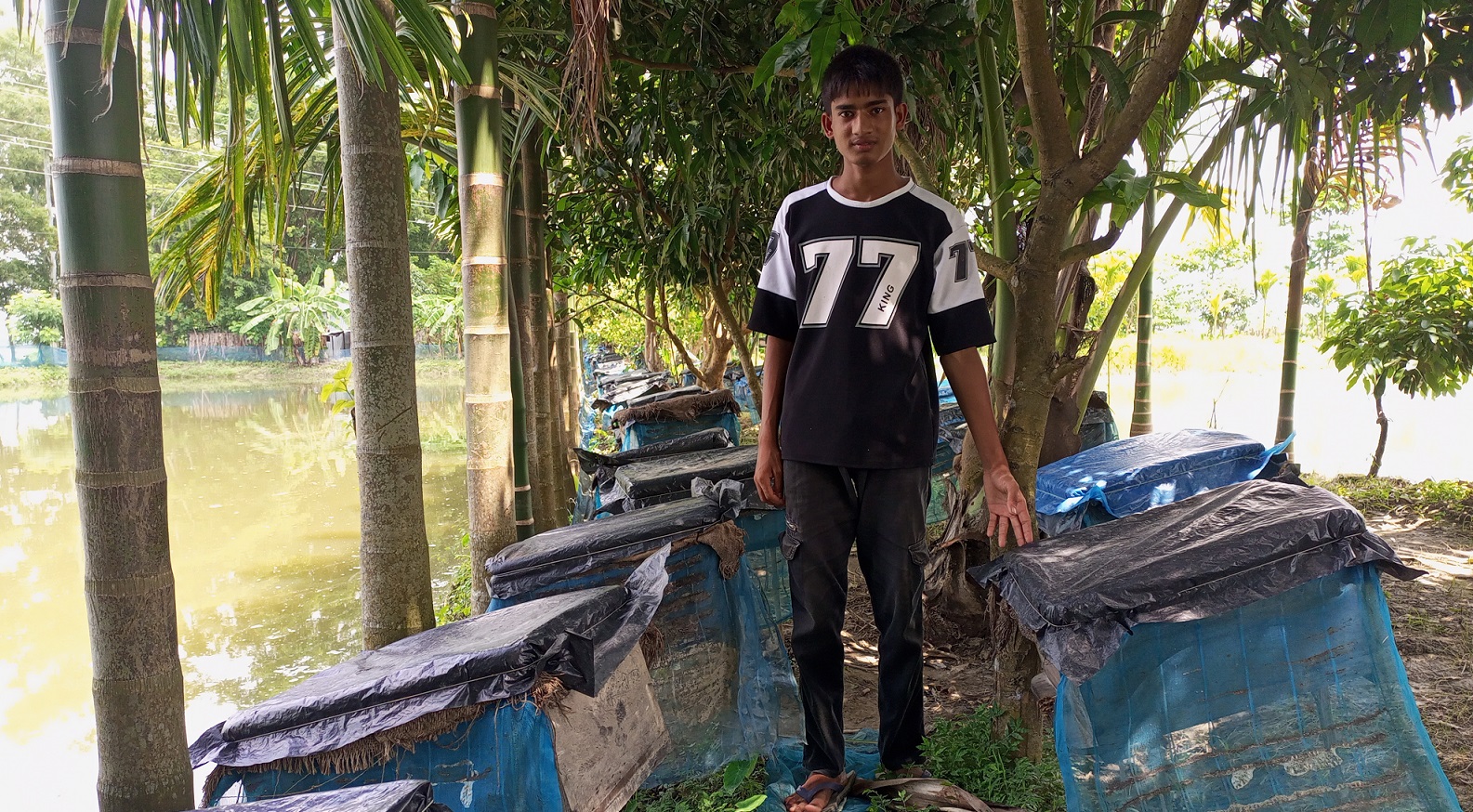By Parboti Rani Singh, Atpara, Netrokona
Nature is the sole source of life, and every creature survives through interaction with it. Bees, though small in size, play a vital role in preserving biodiversity by collecting nectar and pollen, which ensures pollination and sustains ecosystems. Yet, unplanned urbanization, river pollution, excessive use of chemicals, and deforestation have severely threatened both bees and biodiversity, leading to recurring natural disasters.

In Khajanti village of Atpara upazila, retired BGB member Md. Saidur Rahman has set an inspiring example by conserving and cultivating bees. He maintains nearly 200 beehive boxes around his home, which support the environment and contribute to biodiversity. For over five years, he has been producing honey and beeswax, generating significant income.

Young people from different areas have also joined him, caring for the bees, ensuring their survival in adverse conditions, and processing honey and wax. By placing hives in mustard, pumpkin, mango, and litchi gardens during favorable seasons, they collectively harvest up to 100 maunds of honey annually, worth about 2 million taka, along with beeswax.
Saidur Rahman has shown that protecting nature safeguards biodiversity and ultimately secures human survival.
